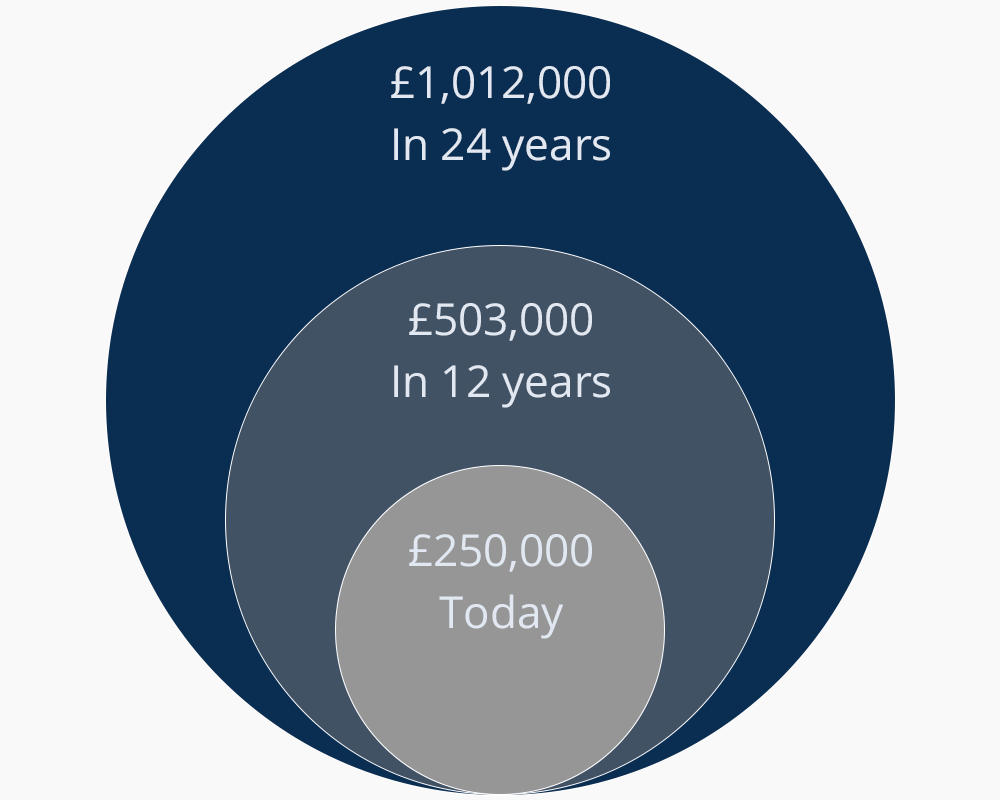
Women & Wealth: No longer Just a Man’s Game?
The penny has dropped that more diverse teams, management structures and leadership models are commercially effective.
Due to these fundamental changes, women increasingly hold significant personal wealth. In the UK, according to the Office for National Statistics, in 2016 the average net estate size for women with “identified wealth” is £246,000 – for men it is £272,000. The Centre for Economics and Business Research estimates that by 2020, 53% of millionaires in the UK will be female.
But where are these women when it comes to investing their money? Is there, in fact, another gap beyond that of pay – the investing gap? At some point, potentially early in our lives and then subliminally underscored thereafter, societal and structural barriers may have restricted women’s ability to be financial participants. And, while progress is welcome, it inevitably presents other important issues.
Balancing family support with the cost of neglecting to invest
As women take on more professional demands, the fact remains that providing for family members at both ends of the generational spectrum is more often taken on by women, with the ensuing personal and financial costs that go with it. Whether it is for elderly parents who may need regular care or financial support, less well-off siblings, or their own adult children who are not yet fully independent. The list of those needing emotional and financial support can be long.
All of this matters, especially when we consider that over 40% of marriages end in divorce, with these numbers increasing in the over 50s. Women also tend to outlive men by 3-5 years on average, exacerbating the need to ensure that investment capital is thoughtfully put to work. By not investing, or by leaving it too late, women create a huge yet avoidable wealth deficit. After all, with average market returns of 6%, every £250,000 that is invested could double over 12 years and could grow to £1 million in 24 years. Leave it in the bank and it is guaranteed to decline in value as inflation eats away at it.
In fact, while holding your money in a savings account may alleviate worries about taking action, your capital is not as safe as it seems. Between the end of 2007 and the end of 2017, the actual purchasing power – after retail price inflation – of £250,000 left to languish in a bank account would have slumped to £210,062. There is a significant cost to inertia, whatever the cause.
Compounding can double your money in 12 years and quadruple it in 24 years

Source: Netwealth. Assumed gross annual return of 6% and an initial investment of £250,000
The legacy and challenges of wealth management
These multiple and diverse constraints are not helped by the fact that when it comes to those who should be there to help, many women view the wealth management industry as male-oriented, unwelcoming and full of jargon. Even those who have a good relationship with their wealth managers may be quick to admit that they don’t feel they have ever truly understood the cost of the service. If pressed, they may recall a number of recommended investments which they didn’t understand and performed poorly.
Despite the pattern of the past, my bet is that this investing gap is going to close, and fast.
The benefits of a modern, user-friendly experience
When women put money aside for their financial goals, we feel in charge of our futures. The satisfaction from investing and meeting these goals only grows as we get older as long as the means are there to create an accessible and user-friendly experience.
At Netwealth, I am seeing a clear and exciting trend among our female clients. By combining modern technology with a client-facing service, women find investing to be empowering; it finally brings the topic of finance alive. It allows them to plan for their financial goals, just as they set themselves goals in all other areas of their hectic, multi-tasking lives. It gives them control.
Of course, our confidence is boosted once we can plan for what we will live on in our retirement, or when we can clearly compartmentalise the fees necessary for our children’s education, or figure out the potential cost of long-term care for an elderly parent.
As I see time and again when women come to our offices, they have distinctive preferences when it comes to wealth management. They are willing to embrace digital technology, have a strong desire for clarity and transparency and feel great distaste at having providers who treat them as inferior or who hide the real costs of their service. Women are doers and also delegators, they have clear views on what they want to achieve and are keen to fit their financial decisions into the rest of their busy lives rather than having to do it all themselves.
Now is the era of change. Women are increasingly aware of their financial position and I believe that with the help of modern technology they will play a greater role in safeguarding their own and their family’s long-term financial welfare, just as they prioritise wellbeing in all other areas of their family’s lives.
Charlotte Ransom is Founder and CEO of Netwealth
Please remember that when investing your capital is at risk

